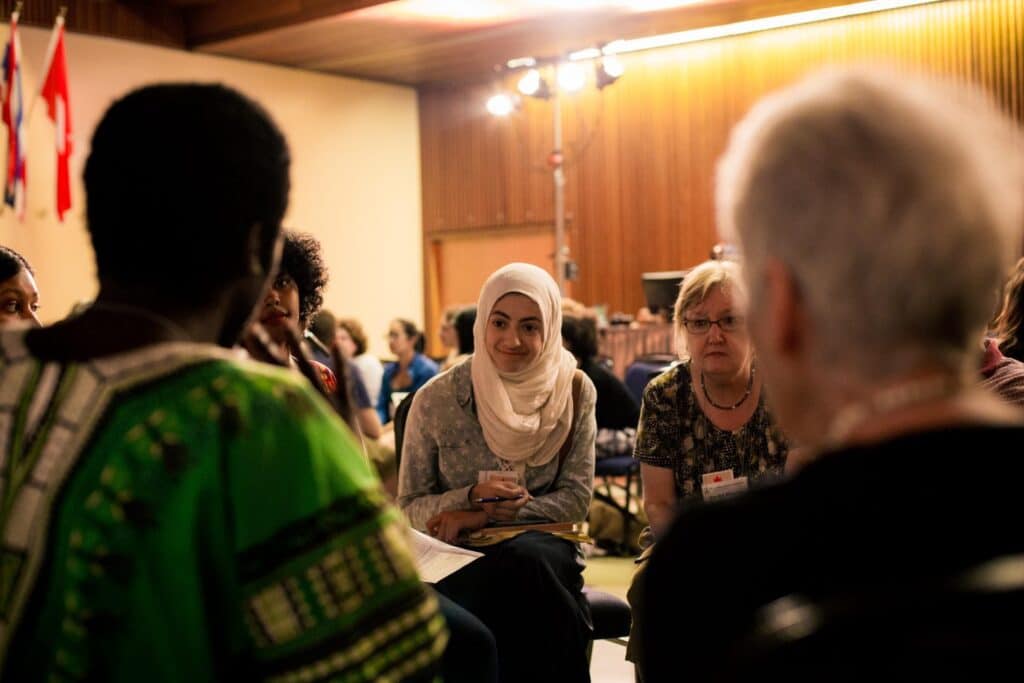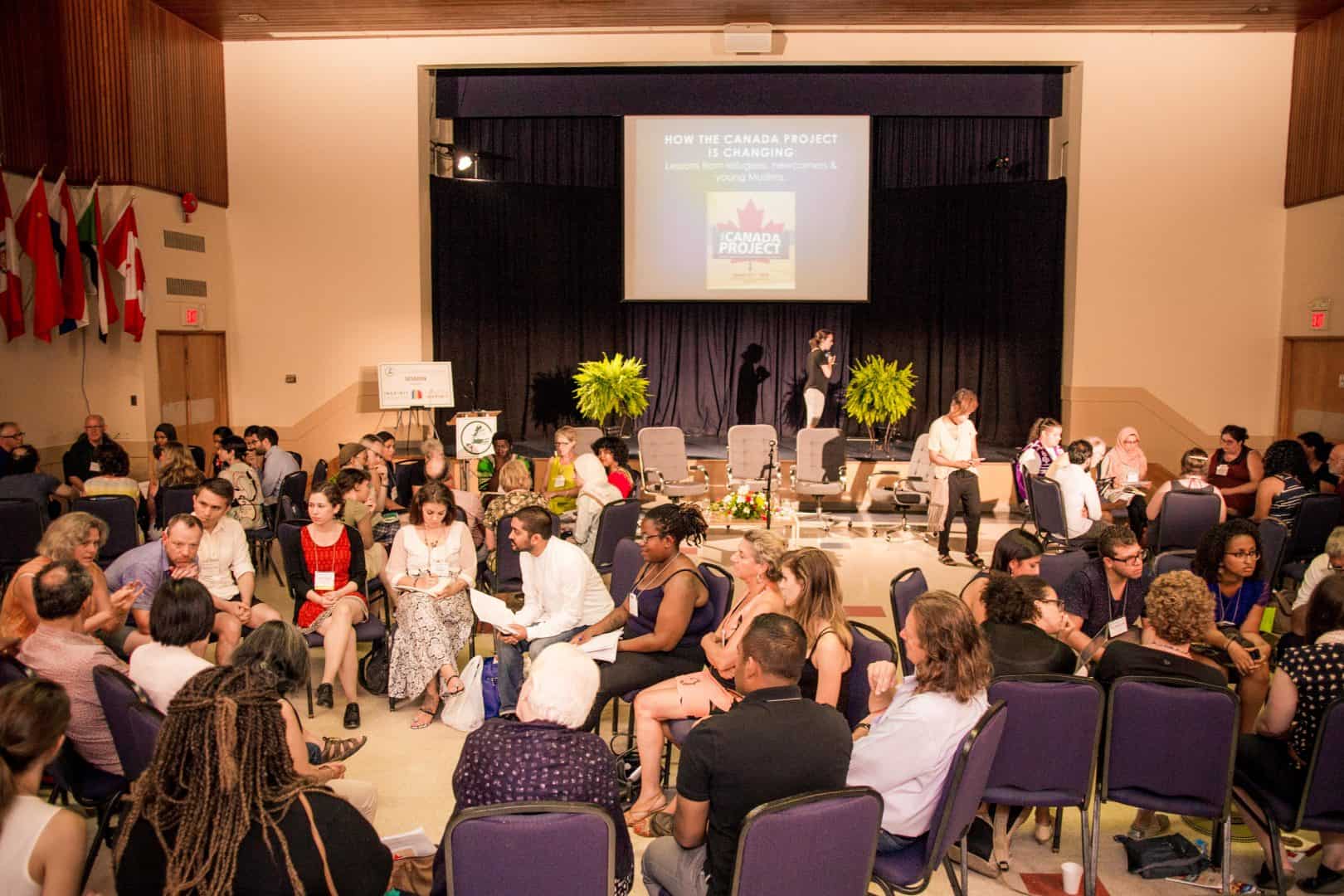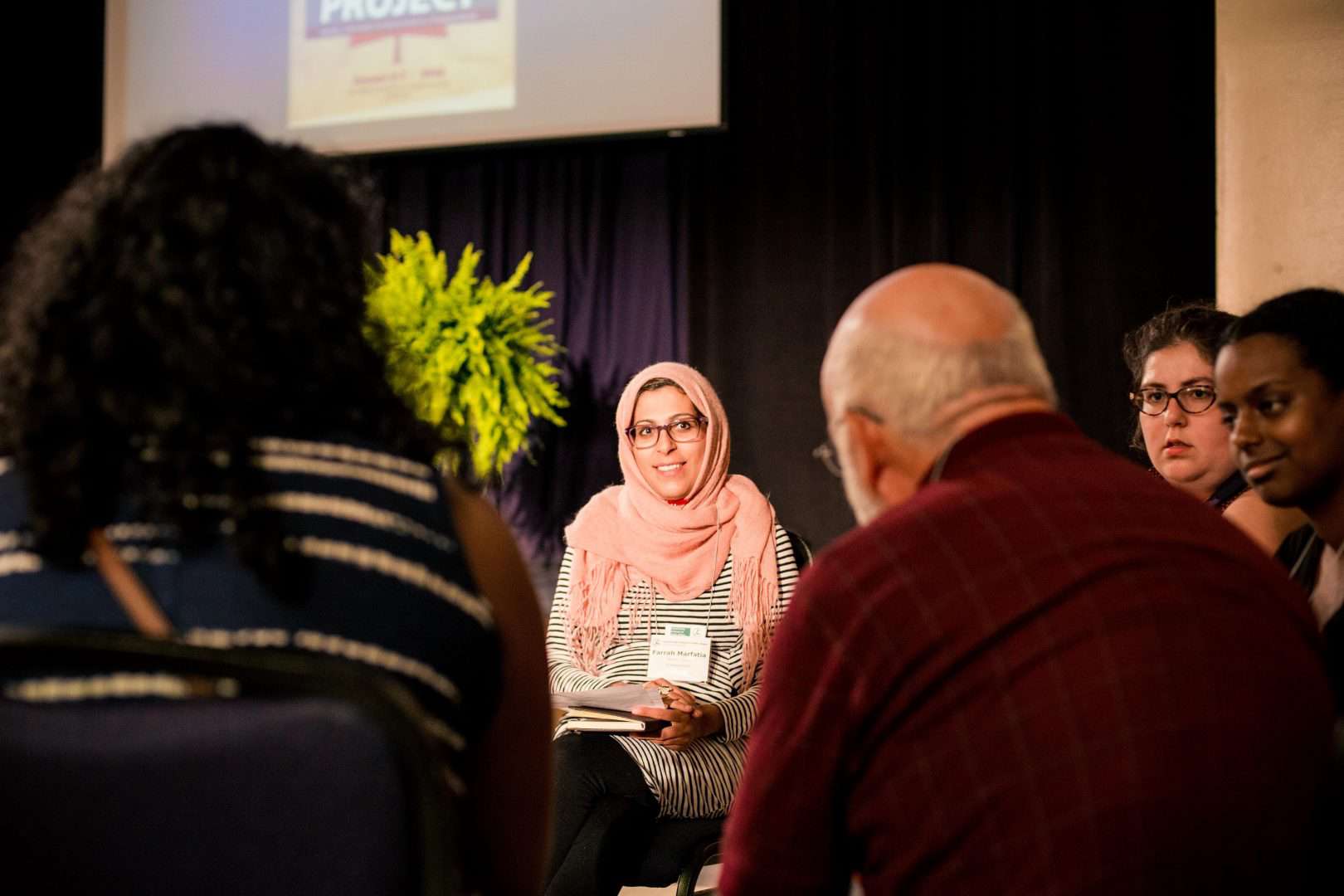
Animating Social Research to Combat Islamophobia
by Sanjeev Timana, Inspirit Foundation’s Research and Evaluation Coordinator
Hatred, racism and Islamophobia thrive on fear and ignorance. Early this year, Canada saw the unsurprising outcome of hatred against Muslims when an act of violence took the lives of 6 innocent people and harmed many others. After having gone through a traumatic violent event like this, we might expect a higher level of scrutiny around Islamophobic ideas and attitudes, but Quebec’s niqab ban this past month demonstrates the pervasiveness of these attitudes at all levels of society. In these difficult times, while most of us deal with the shock and pain of these events, many of us are also wracking our brains to find ways to end discriminatory practices like the niqab ban and ensure that the violence seen in Quebec city in January can never happen again in Canada.

During these critical moments, social research wouldn’t appear to be an obvious tool to challenge Islamophobia and facilitate healing for Muslims; however, as a social researcher I believe the clarifying quality of good, honest social research can help significantly if utilized in the right way. Why does understanding the breadth of Islamophobia matter? Why should we catalogue the different types of behaviour exhibited by Islamophobes?
For me, the reason is simple; all of these behaviours are built upon the foundation that Muslims are ‘less than’ or to be feared and viewed with suspicion. Regardless of whether these attitudes lead a person to violence or some other damaging behaviour, the starting position is always the same, as social research shows us time and again. Many social researchers and community members are already using research in innovative and authentic ways to challenge attitudes detrimental to our social fabric. Below are five ways we can deploy this kind of research to address Islamophobia in Canada and bring about a new relationship between individual Canadians whose belief and values may be different from one another.

1. Defining parameters, scope and impact
What types of behaviour constitute Islamophobia? The National Council of Canadian Muslims categorizes hate crimes and hate incidents against Muslims using definitions used by police services in Canada. These crimes and incidents include physical violence, verbal abuse, spreading hate propaganda and making threats. Islamophobia also manifests itself in other, seemingly mundane behaviours like unnecessary references in speech, bullying and dismissal of Muslims’ opinions or ideas in public settings. Social research like the Environics Institute’s Survey of Muslims in Canada and Inspirit’s Young Muslims in Canada study can help catalogue and codify all the different behaviours that harm Muslims in ways that the law is not equipped to address.
2. The power of hard evidence
Firstly, if a person states that they have been the target of racist and/or Islamophobic behaviour, their statement IS evidence. However, for us to know that a single incident is part of a broader pattern of behaviour or prevailing discourse, we need to situate this single piece of evidence within a broader array. One of the great strengths of good social research is to marry breadth with depth; that is, to be able to demonstrate how widespread the reach of a phenomenon goes on a large scale, while also being able to provide intimate detail of how that phenomenon affects particular individuals in particular situations. By doing so, we can start to find patterns in the way Islamophobia manifests itself in the public sphere, so that we can create targeted responses and solutions to it.
3. Unearthing the real picture of Canada
How many Muslims live in Canada? How many of them live in cities versus rural areas? Which languages and ethnicities are practised and held by Canadian Muslims? If the average non-Muslim Canadian knew the answers to these questions and many others, they may be forced to question the manner and tone of discourse around Muslims in Canada. Social research can help inform and elevate the discourse around Islamophobia in Canada by providing clear context around the issues faced by Muslim Canadians, an honest picture of the diversity of their communities and their inextricable place in wider Canadian society. This is vital to challenging established stereotypes, Islamophobic fear-mongering and for shifting the public agenda onto issues that really matter. It is no surprise that when polled, people tend to vastly overestimate the numbers of Muslims living in countries like Canada, and usually these overestimations are directly linked to negative attitudes. If social researchers mobilized to shine a revealing light on these misconceptions and how far off they are from the truth, people may be forced to question their fears.
4. Self-directed research for and by Muslim communities
The best way for Muslim Canadians to be supported by social research is to shape the research themselves. When communities lead and participate in research projects with goals and objectives that they define, it helps us avoid the perils of researcher bias. More importantly, it allows communities to own their data so that their experience doesn’t merely get extracted for an academic journal, which few people read. Even though researchers would and should aim to be impartial in their practise, no one is free of implicit biases. Even if they try to mitigate the effect of their biases on their results by bringing in community members to advise and support in data collection and analysis, the core research questions are still created by the researchers and therefore, subject to their implicit biases. If Muslim Canadians were to lead and conduct their own research, they wouldn’t just have influence over the methodology and analysis of results, they would have power over arguably the most crucial stage of any research project: defining the research questions. Thankfully, this is already happening with Muslim-led organizations like the National Council of Canadian Muslims, Think For Actions, The Tessellate Institute and others commissioning their own opinion polls of Muslim Canadians with questions based on what they know matters.
5. Galvanizing stakeholders through non-partisan research
Why do Islamophobes harbour negative views towards Muslims? The (too) short answer is that they find their differences to be unpalatable and incongruent with their own views and way of life. Polls, opinion surveys, and focus groups can provide us with snapshots of how the Canadian public feels about certain issues, and we can identify key characteristics that seem to correlate to different attitudes. Inspirit Foundation discovered this for ourselves when we commissioned the “Faces of Canada” study in 2015. This national survey polled a broad range of people living in Canada on issues like their experiences of discrimination, their attitudes towards people different than them and their biggest personal concerns.
There are certainly differences to be found between Muslims and non-Muslims about some issues (e.g. dietary differences, attitudes to alcohol, modest attire, etc.) but what about the big issues that affect everyone like the economy and access to decent work, or the healthcare system and its efficacy, or the effects of climate change on the natural environment? More often than not, faith affiliation is not the key factor that telegraphs how people feel about these issues, which directly counters the ‘clash of civilizations’ narrative prevalent throughout the Anglo-sphere and Europe.
In fact, when faith is tracked in opinion polling but not centred in the research questions, we find that some Muslims and people who harbour anti-Muslim sentiments—to varying degrees— are actually quite aligned on many issues! With rigorous analysis and responsible framing, these insights could be used to challenge ideas that divide people, without denying people their unique perspective based on their faith or culture.